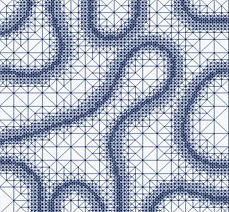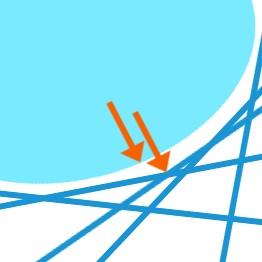Projects in the research area: Modeling, problem analysis, algorithm design and convergence analysis
-
P02Multiobjective Optimization of Non-Smooth PDE-Constrained Problems — Switches, State Constraints and Model Order Reduction
-
P03Bilevel Optimal Control: Theory, Algorithms, and Applications
-
P05Multiscale Control Concepts for Transport-Dominated Problems
-
P11Optimization Problems in Banach Spaces with Non-Smooth Structure
-
P13Simulation and Optimization of Rate-Independent Systems with Non-Convex Energies
-
P14Bilevel Optimal Transport
-
P17Nonsmooth and Nonconvex Optimal Transport Problems
-
P20Stress-Based Methods for Variational Inequalities in Solid Mechanics: Finite Element Discretization and Solution by Hierarchical Optimization
-
P21Theory and Solution Methods for Generalized Nash Equilibrium Problems Governed by Networks of Nonlinear Hyperbolic Conservation Laws
Communicating Research Areas
-

Modeling, problem analysis, algorithm design and convergence analysis
The focus of this area is on the development and analysis of genuinely non-smooth models in the sciences in order to properly capture real-world effects and to avoid comprising smoothing approaches. In simulation and optimization this requires to advance set-valued analysis and the design of robust algorithms for non-smooth problems.
-

Realization of algorithms, adaptive discretization and model reduction
As the target applications of this SPP involve non-smooth structures and partial differential operators, the discretization of the associated problems and robust error estimation are important issues to be address, and proper model-reduction techniques need to be developed.
-

Incorporation of parameter dependencies and robustness
In many applications the robustness of solutions with respect to a given parameter range (uncertainty set) is highly relevant. Correspondingly, in this research area of the SPP, bi- or multilevel optimization approaches will be studied in order to robustify problem solutions against uncertain parameters.

